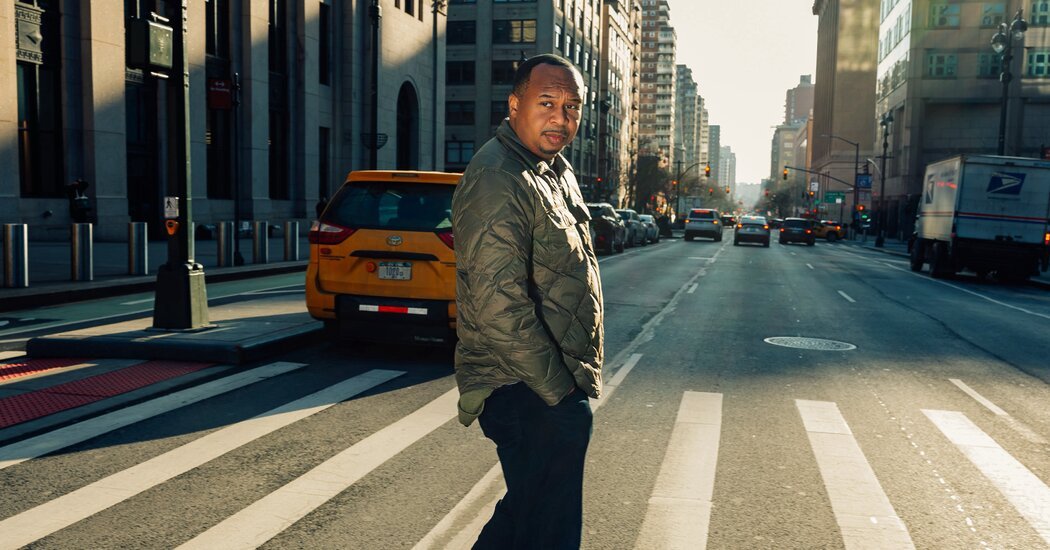When I called Wood in late January, he was midway through a mini-tour through Wyoming, Colorado and Oklahoma, driving to six Air Force bases in nine days. Before that, he attended the premiere of “Love, Brooklyn,” in which he has a supporting role, at the Sundance Film Festival in Park City, Utah. A few days after the mini-tour, he would visit his alma mater in Tallahassee and continue to New York to begin the new season of “Have I Got News for You.” I wondered why a comedian of his stature would submit himself to such a grueling run.
“It feels familiar, it keeps me grounded,” he told me. Those trips reminded him of his early life on the road, when he would perform at the Comedy Zone in Ozark, a small town near an Army base in southern Alabama. Those days put him in touch with the profound weirdness of America. In Ozark, he said, “the town is troops and foreigners. Wherever you got deployed, you came home with a wife of that race, so it’s one of the most diverse cities in Alabama — Asians and Indians and Arabs, and they all sound like they’re from Alabama because they came over here, didn’t speak English, and the English that they learned was Alabama English.” From Ozark, he would move on to audiences of college students at Fort Walton Beach, Fla., and retirees in Biloxi, Miss. “And then Tuesday I’m in Atlanta at Uptown with Earthquake and Nard Holston” — two popular Black comics — “and a couple strippers in the club, booing me.”
Contemporary comedy, he said, doesn’t necessitate that kind of encounter. Social media, podcasting and platforms like YouTube have changed the landscape, allowing comedians to target audiences that will be most responsive to their humor and make substantial money doing it. In a world where you can earn half a million dollars off a podcast, he said, why would you go to Ozark for $150? For him, though, refining his act in front of all sorts of audiences grounds him in a specific ethos.
“I spent the first decade of my career meeting Americans where they were, figuring out what was important to them and figuring out how to make those things funny,” he told me. “Every armpit, every factory town, every we-used-to-make-something-here city — I’ve done it. So you start realizing that a lot of people are all individuals, and to a degree most are harmless.” People are only dangerous, he believes, when they allow their selfishness and ideological rigidity to blind them to the suffering of others. His touring feels like a shield against that selfishness, an investment in a connection with his fellow Americans.
Read More: The Comedian Looking for Something All of America Can Laugh At


